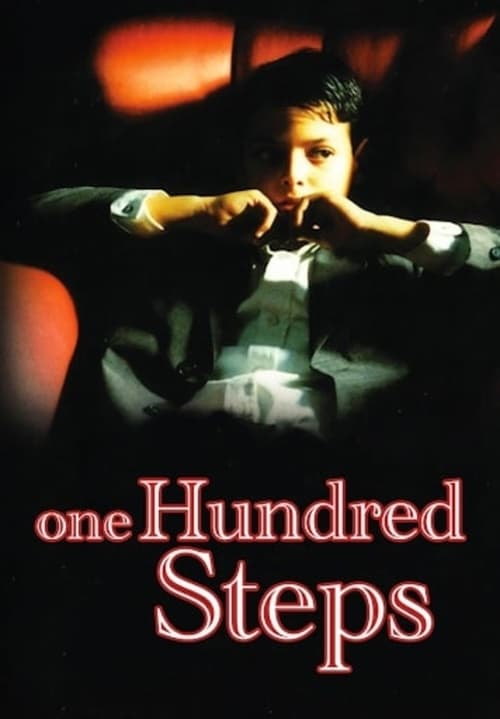Cast
View AllLuigi Lo Cascio
as Peppino Impastato
Luigi Maria Burruano
as Luigi Impastato
Lucia Sardo
as Felicia Impastato
Paolo Briguglia
as Giovanni Impastato
Tony Sperandeo
as Tano Badalamenti
Andrea Tidona
as Stefano Venuti
Claudio Gioè
as Salvo Vitale
Domenico Centamore
as Vito
Antonino Bruschetta
as Anthony
Paola Pace
as Cosima
Pippo Montalbano
as Cesare Manzella
Aurora Quattrocchi
as Moglie di Cesare Manzella
Gaspare Cucinella
as Zù Gasparo
Dario Veca
as Paolino Schillirò
Lorenzo Randazzo
as Peppino Bambino
Crew
Director
- Marco Tullio Giordana
Producer
- Fabrizio Mosca
Reviews
CinemaSerf
This has quite a poignant underlying message of complicity and compliance as it tells the true story of firebrand young man Peppino Impastato (Luigi Lo Cascio). He lives on a mafia-dominated Sicily in a family led by his acquiescing father Luigi (Luigi Maria Burruano). It's not that his dad is cowardly, far from it, but he has a wife (Lucia Sardo) and another son, Giovanni (Paolo Briguglia), so is constantly conscious that any resistance to the established order could prove perilous. Peppino has all the vigour and irresponsibility of his age and together with some friends sets up a local radio station that mixes a contemporary mix of classic rock music with some fairly direct rantings about the local "don" - comparing him to legendary Sioux chief Sitting Bull holding court over a tribe full of drug users and sleazy hookers. This isn't a gun-toting organisation. It doesn't need to be. It gets it's way by a combination of carrot and stick approaches. If the population co-operate then life can be good, but if they stray from the arbitrary control of "Tano" (Tony Sperandeo) then they might find themselves starring in their own personal version of a Buster Keaton film. Cascio is on strong form here offering us quite a compelling presentation of a young man who genuinely believed that his on-air protestations could elicit change for good and when his family warn him of the risks - to them and to him - that just seems to galvanise him. The conclusion is history; a sad and depressing history that rather well illustrated the extent of the collusion that existed between the authorities and the "authorities" and the disposability of an inconvenient life. Briguglia also contributes well as does Sardo as his strong-willed but increasingly wary mother whilst the writing offers us a lively bedrock for characters that mingled passion with prescience in an entertaining and engaging fashion. The production looks good and it's well worth a watch.
Dec 1, 2024
Thematic Analysis
As a dramatic work, One Hundred Steps examines complex human relationships and emotional struggles against the backdrop of contemporary challenges that mirror our own experiences. The character development particularly stands out, offering viewers a chance to reflect on their own life journeys.
Director Marco Tullio Giordana brings their distinctive visual style to this film, continuing their exploration of themes seen in their previous works while adding new elements. Their approach to character development and emotional depth creates a viewing experience that rewards close attention.
Released in 2000, the film exists within a cultural context that continues to evolve with our understanding of its themes. Its critical acclaim reflects its artistic achievements and its place in cinema history.
Did You Know?
- The production of One Hundred Steps took approximately 27 months from pre-production to final cut.
- The final cut of the film runs for 114 minutes, though the director's initial assembly was reportedly 173 minutes long.
- The cast underwent specialized training for 8 weeks before filming began.
- Several scenes were filmed in multiple locations to capture the perfect setting.
- Some visual effects sequences took up to 9 months to complete.
Historical Context
- In 2000, when this film is released:
- Social media platforms were beginning to transform communication.
- Environmental concerns were becoming more mainstream.
- Digital filmmaking technologies were transforming production processes and creating new opportunities.
How This Film Stands Out
While One Hundred Steps shares thematic elements with other films in its genre, it distinguishes itself through its unique approach to storytelling, visual style, and character development.
Unlike The Pianist, which takes a more conventional approach to its subject matter, One Hundred Steps offers a fresh perspective through its innovative visual language and narrative structure.
While films like Schindler's List and A Beautiful Mind explore similar territory, One Hundred Steps stands apart through its deeper exploration of its central themes and more complex characterization.
This film's unique contribution to cinema lies in its bold artistic choices and willingness to challenge viewer expectations, making it a valuable addition to its genre.
Details
- Release Date: September 1, 2000
- Runtime: 1h 54m
- Revenue: $1,805,884



















